 Petzlover
Petzlover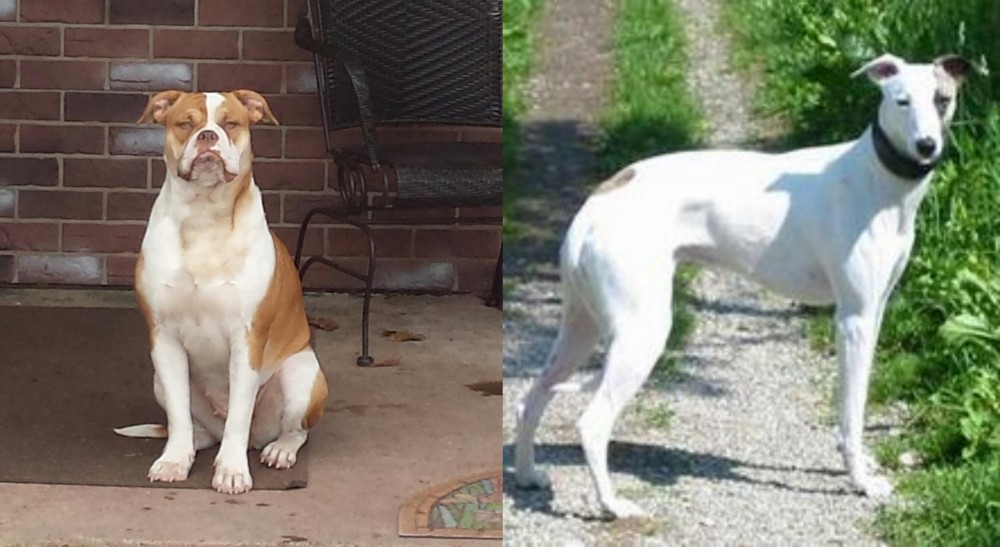 Alapaha Blue Blood Bulldog is originated from United States but Kaikadi is originated from India. Alapaha Blue Blood Bulldog may grow 16 cm / 7 inches higher than Kaikadi. Alapaha Blue Blood Bulldog may weigh 26 kg / 58 pounds more than Kaikadi. Both Alapaha Blue Blood Bulldog and Kaikadi has almost same life span. Both Alapaha Blue Blood Bulldog and Kaikadi has almost same litter size. Alapaha Blue Blood Bulldog requires Moderate Maintenance. But Kaikadi requires Low Maintenance
Alapaha Blue Blood Bulldog is originated from United States but Kaikadi is originated from India. Alapaha Blue Blood Bulldog may grow 16 cm / 7 inches higher than Kaikadi. Alapaha Blue Blood Bulldog may weigh 26 kg / 58 pounds more than Kaikadi. Both Alapaha Blue Blood Bulldog and Kaikadi has almost same life span. Both Alapaha Blue Blood Bulldog and Kaikadi has almost same litter size. Alapaha Blue Blood Bulldog requires Moderate Maintenance. But Kaikadi requires Low Maintenance
 Alapaha has a very interesting history. Their origin dates from one family that lived near Alapaha river in Georgia, in the USA 200 years ago. The family rescued dying breed of Plantation Bulldog. They actually had this breed for 80 years and every dog was named Otto. This breed was not just saved, but the family created a perfect guard dog. Alapaha Blue Blood Bulldog started to expand and by 1980s they spread through the country.
Alapaha has a very interesting history. Their origin dates from one family that lived near Alapaha river in Georgia, in the USA 200 years ago. The family rescued dying breed of Plantation Bulldog. They actually had this breed for 80 years and every dog was named Otto. This breed was not just saved, but the family created a perfect guard dog. Alapaha Blue Blood Bulldog started to expand and by 1980s they spread through the country.
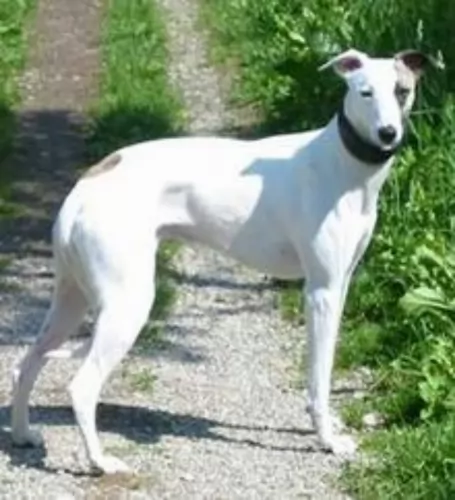 The Kaikadi or Kai Kadi is a terrier dog, hailing from India. Not much is available on the history of the dog, but today you won't easily find original Kai Kadi in India. This is because they have essentially been mixed with stray dogs of India as well as Pariah.
The Kaikadi or Kai Kadi is a terrier dog, hailing from India. Not much is available on the history of the dog, but today you won't easily find original Kai Kadi in India. This is because they have essentially been mixed with stray dogs of India as well as Pariah.
It is for this reason that the dog isn't recognized as a standardized breed by any of the leading kennel clubs.
 Alapaha Blue Blood Bulldog height is approximately 61 cm, while their weight variates from 34-47kg. Have in mind that females are slightly smaller than males.
Alapaha Blue Blood Bulldog height is approximately 61 cm, while their weight variates from 34-47kg. Have in mind that females are slightly smaller than males.
A lifespan of Alapaha Blue Blood Bulldog is approximately 11-13 years, but it depends from dog to dog, and with proper care, they can live much longer.
Litter Size of this breed depends but average is 4-8 puppies.
Other Names for Alapaha Blue Blood Bulldogs are Alapaha, Otto, Otto Bulldog.
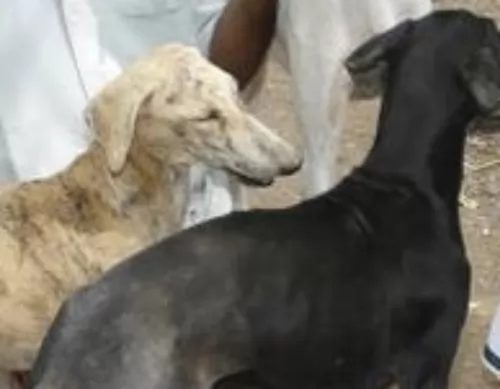 These dog have always been used for hunting, guarding and herding in India and today he makes a good watchdog, watching over his human family.
These dog have always been used for hunting, guarding and herding in India and today he makes a good watchdog, watching over his human family.
It's not a large dog though and he stands at roughly 35 to 45cm in height and weighs 17 to 21kg. He is lean and muscular, looking similar to the Italian Greyhound or Whippet.
He has a short smooth coat and the color can be patterned white, tan and black. The head is long and thin, as are the legs, and his tail is long and thin too. The floppy ears stand erect when alert.
The Kaikadi is an affectionate, alert, energetic dog. He won't do well in a city environment with a tiny garden as he requires a large garden to run in.
He is a dog that will need to be trained and socialized if you want him to be obedient and to get on well with children in the home as well as pets.
He can be a fairly quiet, docile dog inside but outside when there is a game to be had, he becomes lively and animated. They are quite sensitive, so while they get on well with children in the home, he won’t respond well to large families with lots of rowdy, undisciplined children as it makes him anxious.
 Alapaha breed is not just beautiful and unique breed, but they are also great family dogs. They are very loyal, but also very protective and sometimes possessive. Alapaha will require a lot of attention. It is very important to train your dog properly from the early age. A steady and firm hand is important so if you are first time owner, consider having this breed twice. You should not punish your dog, or implement any types of old-fashioned way of training. They do not respond well to that. Overall, they are very smart and quick learners. Alapaha needs to be socialized with other animals from the early age. They can be aggressive towards dogs that they don’t know. At first, you can train them around the house with family and friends, and after the puppy receives all the vaccines, you can start with socialization with other dogs. If you are first time owner and you want this beautiful breed, you should advise with more experienced breed owner. They simply have more experience than you and they know and understand the puppies, so you will receive more accurate advice. Have in mind that every dog has its own personality. Overall, if you train your dog properly you will have a happy and healthy dog that will be amazing with other animals and especially family members.
Alapaha breed is not just beautiful and unique breed, but they are also great family dogs. They are very loyal, but also very protective and sometimes possessive. Alapaha will require a lot of attention. It is very important to train your dog properly from the early age. A steady and firm hand is important so if you are first time owner, consider having this breed twice. You should not punish your dog, or implement any types of old-fashioned way of training. They do not respond well to that. Overall, they are very smart and quick learners. Alapaha needs to be socialized with other animals from the early age. They can be aggressive towards dogs that they don’t know. At first, you can train them around the house with family and friends, and after the puppy receives all the vaccines, you can start with socialization with other dogs. If you are first time owner and you want this beautiful breed, you should advise with more experienced breed owner. They simply have more experience than you and they know and understand the puppies, so you will receive more accurate advice. Have in mind that every dog has its own personality. Overall, if you train your dog properly you will have a happy and healthy dog that will be amazing with other animals and especially family members.
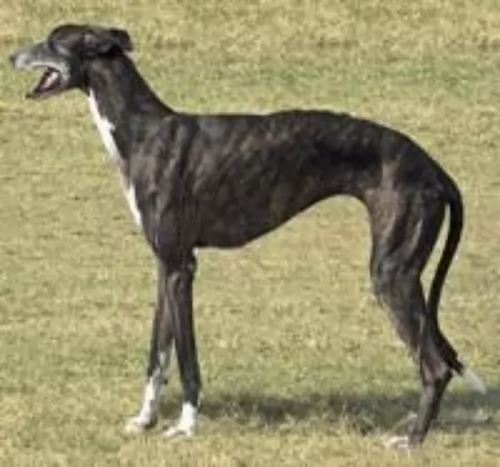 Your Kai Kadi loves running and playing outside, after all he has always been a hunting dog. He will love to spend time with you outside playing.
Your Kai Kadi loves running and playing outside, after all he has always been a hunting dog. He will love to spend time with you outside playing.
The Kaikadi is a low maintenance dog too. Provide your Kaikadi with everything that makes a dog happy and in exchange you’ll get yourself a loyal, loving pet who wants to be your friend.
 Almost every breed has health issues. That doesn’t mean that your dog will have the same health problems that are typical of the breed. If you choose puppy carefully, from the right breed owners, and if you take them to the regular vet checks with proper diet, most likely that you won’t be having any problems. Alapaha’s usual health problems are hip dysplasia, congenital deafness, entropion- this is an eye related problem, and sometimes they can have skin problems too. Again have in mind that this breed is very healthy and they do not have as many problems as regular bulldogs. The best way to protect yourself from getting a sick dog, you can require tests from the breed owners. If they are reluctant to do that, or they are assuring you that they have healthy dogs, have in mind that something is probably wrong. It is the best to choose a puppy with someone who has more experience with this breed.
Almost every breed has health issues. That doesn’t mean that your dog will have the same health problems that are typical of the breed. If you choose puppy carefully, from the right breed owners, and if you take them to the regular vet checks with proper diet, most likely that you won’t be having any problems. Alapaha’s usual health problems are hip dysplasia, congenital deafness, entropion- this is an eye related problem, and sometimes they can have skin problems too. Again have in mind that this breed is very healthy and they do not have as many problems as regular bulldogs. The best way to protect yourself from getting a sick dog, you can require tests from the breed owners. If they are reluctant to do that, or they are assuring you that they have healthy dogs, have in mind that something is probably wrong. It is the best to choose a puppy with someone who has more experience with this breed.
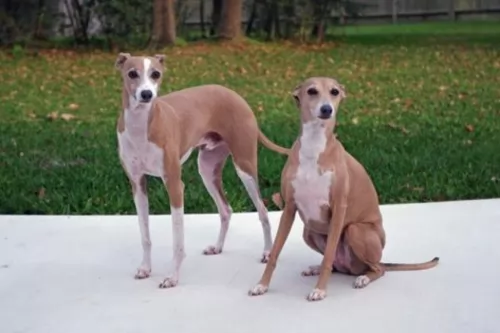 When you’ve got a Kai Kadi, make sure you understand some of the health risks that come along. This is a healthy dog breed so you’re not likely to have much going wrong with him, but you need to know that he can get sick and then you need to have the name of a good vet for medical treatment -
When you’ve got a Kai Kadi, make sure you understand some of the health risks that come along. This is a healthy dog breed so you’re not likely to have much going wrong with him, but you need to know that he can get sick and then you need to have the name of a good vet for medical treatment -
A sudden drop in blood sugar, which is many times brought on by stress, can make your dog lethargic and even have slight tremors in the face. It could be a hypoglycemic attack. See the vet immediately.
The pancreatitis can become inflamed and your dog could be vomiting, have diarrhea and have abdominal pain. There are quite a few things that can cause pancreatitis such as obesity, infection as well as stress.
 Feeding of this breed variates on the size of the dog and activity. If your dog is big and very active, you will have to feed it more. Overall, 2-4 cups of high-quality dry food would be enough. It is the best if you divide that into 2 meals per day.
Feeding of this breed variates on the size of the dog and activity. If your dog is big and very active, you will have to feed it more. Overall, 2-4 cups of high-quality dry food would be enough. It is the best if you divide that into 2 meals per day.
If you have a puppy, it is the best to feed it 3-5 times per day in smaller portions. That is the best way to develop your dog into a healthy and happy adult. In the first year, you should feed your dog this way.
Grooming Alapaha dog is very easy actually. They have a short coat, so occasional grooming is all that this breed needs. Of course, you can bath your dog when gets dirty, but not too often. With occasional bath and semi-regular brushing, you will have a perfectly clean dog.
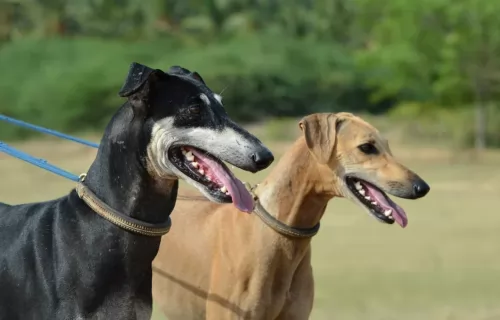 Owning a dog is a responsibility, requiring you to look after a living being just like you would any family member of yours, otherwise why get a dog in the first place?
Owning a dog is a responsibility, requiring you to look after a living being just like you would any family member of yours, otherwise why get a dog in the first place?
You may want a dog for watchdog purposes, but as a living creature, it is important to develop a relationship with your pet and to show him that you love and appreciate him.
There are many things to do to ensure you have a healthy, happy 4-legged canine member in your household
Make sure he has fresh, cool water available to him around the clock.
Provide him with a warm, dry place to sleep.
Provide him with wholesome food to maintain health. There are many excellent commercially manufactured foods on the market. Buy one according to the size and energy levels of your pet. Try to sometimes add cooked home-made food into his kibble such as cooked chicken, brown rice and vegetables as well as some raw meat from time to time. This diet is guaranteed to keep your pet mentally and physically well.
Check your pets nails, ears and eyes regularly. He should be checked for fleas and ticks when you brush him twice a week. Have him examined by a veterinarian as soon as you suspect something is amiss with him. Keep him up to date with his vaccinations.
The Kaikadi is an energetic dog so make sure that you provide him with the opportunity to be exercised. Take him on walks or hikes, play ball and rope games with him and go swimming with him to ensure he remains lean and muscular.
Have him trained and socialized as it takes off the rough-edges of a dog.